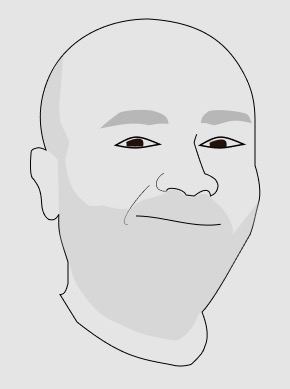Conflicting health advice
haideralmosawi • 10 May 2025 •
The world of health is notorious for the conflicting opinions within it. Many divergent approaches claim to have the scientific proof their approach is the best way to go. Vegetarians have their proofs. Carnivores (the human kind) have their proofs. Calorie-counters have their proofs. And the list goes on and on and on.
Today we had lunch at my eldest brother’s place. I drove my younger sister there because her car was in the garage. On the way she was telling me that the meal plan I was on wasn’t ideal because it includes rice. A big no-no in her book. When we got to my brother’s house I spoke with my youngest brother, who happens to be a personal trainer. He’s on the same meal plan that I’m on, but for my weight, he encouraged that I increase calories, not reduce them (this advice conflicts with what my friend was telling me helped him lose 30kg+/66lbs+ before).
My sister also thought that the 10,000 step target wasn’t ideal and that there are other ways to remain active (like lifting weights. And even then, she got better results by not overdoing the lifting sessions and less was more for her).
I want to see what results I get and maybe play around with a few variables to see if I get better results. But there are some fundamentals I want to stick to and I remain committed to leading a healthy life.
How do you navigate conflicting opinions in the health space?
Comments
@Winkletter So the challenge is: how can I properly understand my own context and what behavioral advice is most suited for me? And for me to answer this, I need to ask: How do I determine the relevant factors to me so that I can make the right decisions? I guess this will require intentionality and experimentation to get right.
Advice exists because there is a context in which that advice does not work.
Do you mean it exists because there is a context in which it DOES work? I suppose that’s what keeps advice circulating for a long time (that and wishful thinking that the advice will work).
If the advice always made sense, we would just do that thing and be done with it.
I would disagree with this. This reminds me of Derek Sivers’ observation: If all we needed was information, we’d all be billionaires with perfect abs.
I agree context matters, but also that getting the results we want isn’t simply a matter of KNOWING what works. There is a lot of emotional resistance towards doing the things that work. Sometimes the resistance is towards what’s easy because it feels unearned (yes, humans are weird 🤣).
Do you mean it exists because there is a context in which it DOES work?
Nope. Advice exists because there are contexts in which it does NOT work. If the advice being given worked in all contexts, it wouldn’t be a recommendation anymore, it would be an obvious fact. “Don’t drink bleach. Don’t eat burning coals.” That’s not advice, that’s objective reality.
“Don’t eat rice,” is advice. There are contexts where it makes sense, but there are (by extrapolation) other contexts where it fails.
There is a lot of emotional resistance towards doing the things that work.
Emotional resistance is part of the context which is specific to the individual, their environment, and goals. You can eat rice with practically every meal if–like the 100-year old Japanese woman–you happily wake up every morning and make a breakfast that includes a bowl of rice, grilled fish, miso soup, a rolled omelet, pickled vegetables, etc. Making a satisfying, varied, restrained meal that includes rice takes a lot of work.
The reason we get conflicting advice is because people strip away all the necessary context. We treat complex or analytical questions as if they had categorical answers. It’s cumbersome to include all the caveats. When you get advice like “don’t eat rice,” you have to decide if it makes sense given your particular constraints: you’re an individual in a particular environment with specific goals. (And then you have to decide if you want to change your context, but that’s a whole other thing.)
Advice used to be more contextual. We used to depend on tradition to find the optimal foods to eat in our environment, but now we have to adjust to all sorts of nonsense that keeps changing the context that we live in. Advice needs to be digested for it to be bioavailable.

You raise a great point, and I choose to stay out of the diet advice realm. From a broader perspective, biohacking needs more curation based on individual circumstances. My aim as a health consultant is to work with individuals, understand their issues, goals, and targets, and provide tailored recommendations. I have a dream of starting a podcast where I invite experts on both sides of a controversial topic and moderate a lively debate that allows the audience to decide for themselves.

Hmm… it’s almost as if the body is a complex homeostatic system that can’t be managed with isolated deterministic pronouncements. The rice thing, for example, is right in one context, but if you look at the traditional diet of a 100-year old Japanese obasan, rice is obviously not a problem in that context. It comes back to the whole situated context.
Advice exists because there is a context in which that advice does not work. If the advice always made sense, we would just do that thing and be done with it.